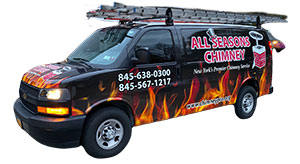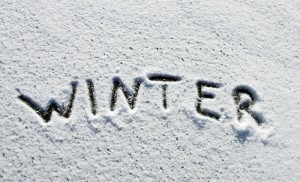Fall is nearly halfway over with the beginning of November finally arriving. For New Yorkers, this means winter and plenty of snow is just around the corner. Sandals and shorts are a mere memory now, and most people are starting to dress warmly with scarves, hats and jackets. Homeowners with fireplaces have started prepping them for a long, bitter winter, if they have not already started using them already. Most people know their fireplaces and chimneys should have the basic maintenance of a sweep and an inspection done every year, but they may not know the special care needed to help their chimneys stay safe from the brutal New York winters year after year.
A common misconception about chimneys is that they are built to withstand being outside and need little care aside from a regular sweep. While chimneys are constructed with the outdoor elements in mind, they are not weather proof and certainly not winter proof. The main concern with chimneys during the winter is actually with water damage, which may come as a surprise to many homeowners.
Water can cause severe and costly damage to a chimney, particularly to masonry chimneys. Masonry chimneys generally consist of materials like brick, mortar, stone and concrete. With the exception of stone, all of these materials are porous, so they readily absorb any water that comes into contact with them. The absorption of water may not be so bad in and of itself, when it combines with the freezing temperatures of winter, it spells big trouble. During the freeze and thaw cycle of winter, the water trapped inside the brick and concrete causes everything to continually expand and contract. This constant swelling and shrinking deteriorates the materials, and eventually leads to cracking and even collapse of the structure.
Water can also cause damage to the inside of your chimney if freezing rain or melted snow can enter the flue. The flue lining is generally made of metal, so any exposure to water can cause cracks or holes to form in the lining. In turn, the inside of the chimney also becomes a victim to water damage, and your home is no longer effectively protected from the heat of the fire. Water can also rust out the damper assembly, making it impossible to vent the fire properly, and you may even see water damage in the form of water stains on the ceiling and walls surrounding the fireplace.
You can avoid all of these costly issues with a few simple fixes. Ask your mason about applying a permeable sealant to the outside of your masonry chimney, which allows any trapped moisture to escape and prohibits any exterior moisture from being absorbed. An inspector can check the condition of the chimney cap and the chimney crown, if you have one, which helps keep water out of the inside of the chimney. Before the snow starts to fall and icy roofs make an inspection too difficult, set up an appointment to winter proof your chimney this year. If you live in the lower Hudson Valley area, contact All Seasons Chimney for a professional consultation.


